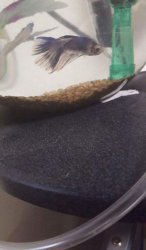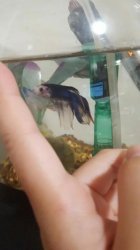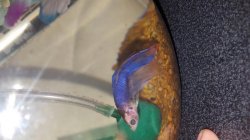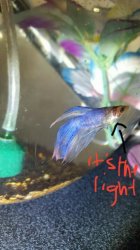I did some research and I came up with this: "BettaZing and BettaFix are anti-parasitic, anti-fungal and anti-protozoan medications that are great when used as a preventative medication to prevent the development of clamped fins or velvet fins. This medication should be applied as a preventative measure any time you acclimate a Betta to a new environment or anytime you add a new Betta fish to your tank."
So in answer to your question no, it would not be harmful if he is healthy, (assuming you dose correctly), because it is generally used on healthy fish to prevent them from getting velvet.
In answer to your second question Bettafix will only work if your betta, (who is beautiful BTW), is in the earliest stages of velvet which I am not in a position to determine myself.
However even if she is in the later stages you are not out of hope because there are alternative medications which if applied correctly could also cure her.
You have two options: Malachite Green and Copper Sulphate.
However, if you go for this option be warned. If your betta does not have velvet or is in the earliest stages these substances are TOXIC and will have harmful repercussions if used incorrectly on your betta.
If I were you I would consult my LFS. If that is not an option I would then try and treat with Bettafix and if that did not work move on to Malachite green.
Please keep us updated.
Good Luck.
Cameron






